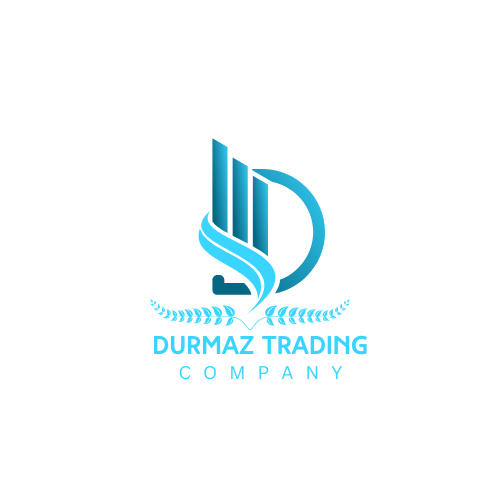So, I was fiddling around with some yield farming platforms the other day, and wow, the landscape is just exploding. Seriously? One minute you’re just stacking tokens, the next you’re juggling assets across several chains like a circus pro. Here’s the thing: while the opportunity looks golden, the custody solutions haven’t quite caught up. Something felt off about how traders are managing their keys and assets in this multi-chain frenzy. It’s like having a fancy car but no keys that fit all the doors.
At first, I thought, “Hey, isn’t any wallet good enough for yield farming?” But then I realized that’s a pretty naive take. Actually, wait—let me rephrase that—most wallets out there are either too siloed or overly complicated for quick, secure multi-chain trading. On one hand, decentralization promises control and security; though, actually, juggling multiple keys and browser extensions quickly becomes a pain. Traders want seamless access, but not at the cost of security or ease.
Yield farming has this crazy appeal because you can earn passive income by locking your crypto in liquidity pools. But the reality is, those pools often span different blockchains—Ethereum, Binance Smart Chain, Avalanche, you name it. Managing assets across chains means dealing with different wallets or complex bridges, which is where many traders hit a wall. I mean, sure, you can use multiple wallets, but that’s a recipe for mistakes or worse, hacks.
Here’s what bugs me about a lot of custody solutions—they either force you to be fully decentralized but clunky, or they’re centralized but lack transparency. There’s rarely a middle ground for traders who want the best of both worlds: strong security with integrated access to centralized exchanges for quick trades and yield farming moves.
Check this out—

That dashboard? It’s what I’ve been daydreaming about: real-time multi-chain asset management paired with integrated exchange access. It’s not sci-fi anymore. Wallets like okx are pushing this frontier, honestly making life easier for traders who need to hop between chains and markets without losing their minds or their funds.
Multi-Chain Trading: The Double-Edged Sword
Okay, so check this out—multi-chain trading sounds like the ultimate flexibility. You can chase the best yields or arbitrage opportunities wherever they pop up. But the hassle? Man, it’s real. You’re constantly moving funds across bridges, worrying about fees, and praying the bridge doesn’t get compromised. My instinct said, “This is way too risky for casual traders,” and I wasn’t wrong.
Initially, I thought using a centralized exchange would simplify matters, but that’s only half true. Centralized exchanges offer liquidity and speed, yet they hold your keys, which kind of defeats the purpose of DeFi’s trustless promise. Actually, it’s a balancing act between control and convenience. And that’s where custody solutions integrated with centralized exchanges shine—giving you the ability to trade quickly while retaining control over your assets.
Now, the problem is, most wallets don’t offer this kind of hybrid approach. You either have DeFi wallets with no exchange integration or centralized wallets that lock you in. Traders who want to be nimble in yield farming and multi-chain trading are often forced to juggle multiple platforms, which is a very very important vulnerability point.
I’m biased, but I think the future lies in wallets that let you navigate these worlds seamlessly. For example, the okx wallet extension integrates custody with direct access to the OKX exchange, making it easier to farm yields and swap tokens across chains without constantly switching tools or risking exposure.
Custody Solutions: Beyond Just Holding Keys
Custody isn’t just about safekeeping anymore. It’s about enabling complex strategies while keeping security airtight. The traditional model of cold storage or hardware wallets is great for long-term holding, but it’s impractical for active yield farmers and traders. They need wallets that are nimble, multi-chain compatible, and integrated with exchanges.
Here’s the catch—security often competes with usability. Traders want fast access and multi-chain flexibility, but the more you expose your keys across chains and platforms, the more attack surface you create. So, what’s the solution?
One approach that’s gaining traction is smart custody solutions that combine multi-signature setups with seamless integration to exchanges and DeFi apps. This way, you retain control with added layers of security, and still, trade or farm yields without jumping through hoops.
For example, wallets like okx offer a hybrid custody model that gives you the convenience of a centralized exchange’s liquidity and speed, while maintaining your private keys on your device. This is crucial, especially when you’re constantly moving assets across chains.
Oh, and by the way, the UX on these wallets is getting surprisingly intuitive, which bugs me a little since I prefer nerdy complexity, but hey, mainstream adoption needs that smoothness.
The Road Ahead: What Traders Should Watch For
I’m not 100% sure how fast the industry will adopt these smarter custody solutions, but I do know the pressure is mounting. Yield farming strategies are evolving rapidly, and multi-chain ecosystems are only growing more intertwined. Traders who don’t have a wallet that supports integrated, multi-chain custody with exchange connections risk missing out or worse, losing funds.
Something to keep in mind: always vet your wallet’s security model and how it handles multi-chain assets. The last thing you want is to get caught with your pants down while chasing yield on a chain you barely understand.
Personally, I’m watching wallets that blend decentralized control with centralized exchange power. The okx wallet extension is a standout here, offering a neat balance that feels like it was built by traders for traders. It’s like having a Swiss Army knife in your crypto toolkit—versatile, reliable, and ready for the multi-chain jungle.
Anyway, this whole space is a bit like trying to catch a fast-moving train while juggling flaming torches. Challenging, but if you can get it right, the rewards are pretty dang sweet.
Frequently Asked Questions
What is yield farming and why does it require multi-chain support?
Yield farming involves lending or staking crypto assets to earn interest or tokens. Since many opportunities exist across different blockchains, supporting multiple chains lets traders maximize returns by accessing diverse pools.
Why is custody important for multi-chain trading?
Custody solutions secure your private keys and assets. For multi-chain trading, you need wallets that can safely manage assets across different networks without compromising security or convenience.
How does the okx wallet help with these challenges?
The okx wallet extension integrates your private key management with direct access to the OKX centralized exchange, enabling smooth multi-chain trading and yield farming with enhanced security.
